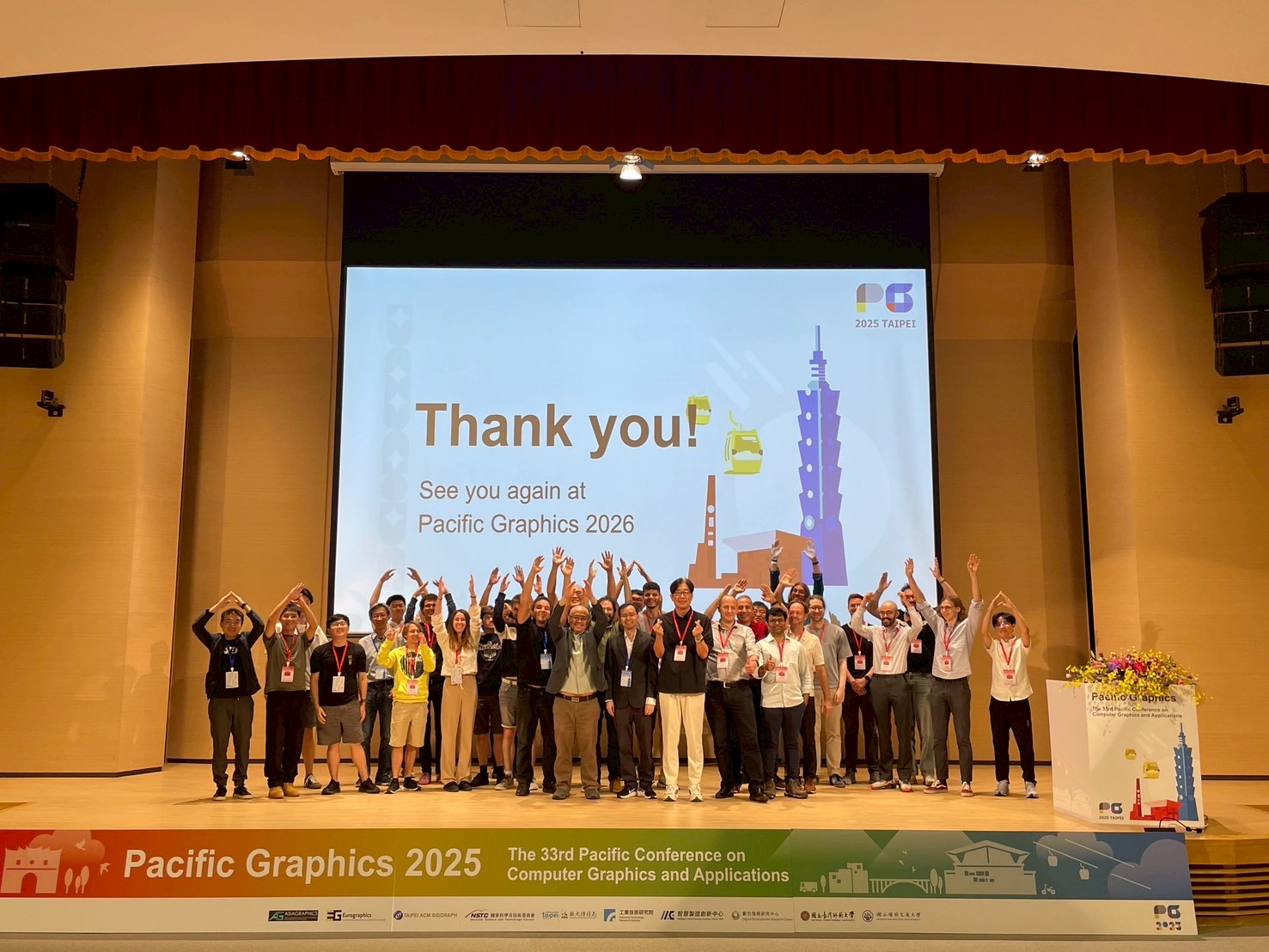
| Paper abstract due | May 30 |
| Paper due (SRM system for papers) | June 6 |
| Reviews to Authors | July 21 |
| Rebuttal Due | July |
| Decision Notification | August 8 |
| Camera-ready | August 22 |
| Poster/Demo Submission (SRM system for posters/demos) | August 15 |
| Poster/Demo Decision | August 22 |
| Conference Dates | October 14-17 |
Conference Chairs
Tsai-Yen Li
National Chengchi University
C. Karen Liu
Stanford University
Olga Sorkine-Hornung
ETH Zurich
Program Chairs
Yu-Shuen Wang
National Yang Ming Chiao Tung University
Marc Christie
University of Rennes 1
Nico Pietroni
University of Technology Sydney
Poster Chairs
Shih-Syun Lin
National Taiwan University of Science and Technology
Eugene Zhang
Oregon State University
Teseo Schneider
University of Victoria
Demo Chairs
Hsin-Ruey Tsai
National Chengchi University
Ping-Hsuan Han
National Taipei University of Technology
Organizing Chairs
Ming-Te Chi
National Chengchi University
Ko-Chih Wang
National Taiwan Normal University
International Program Committee